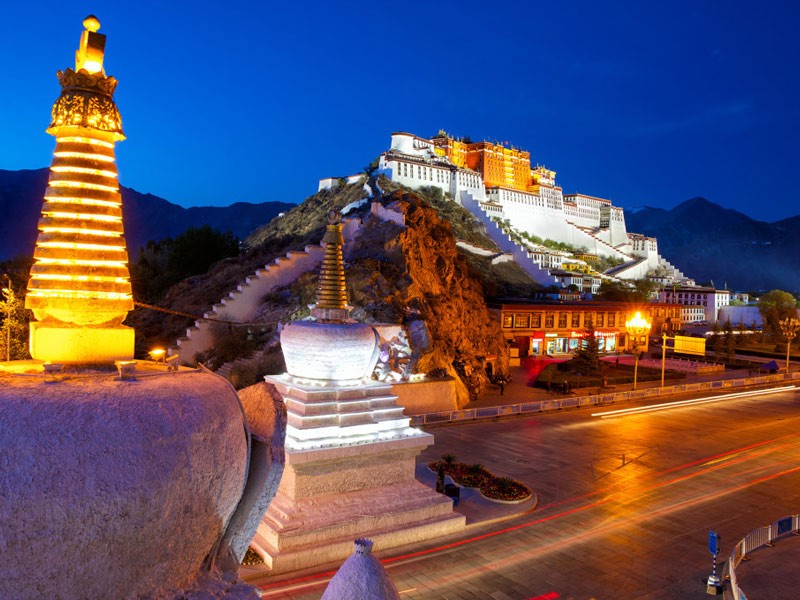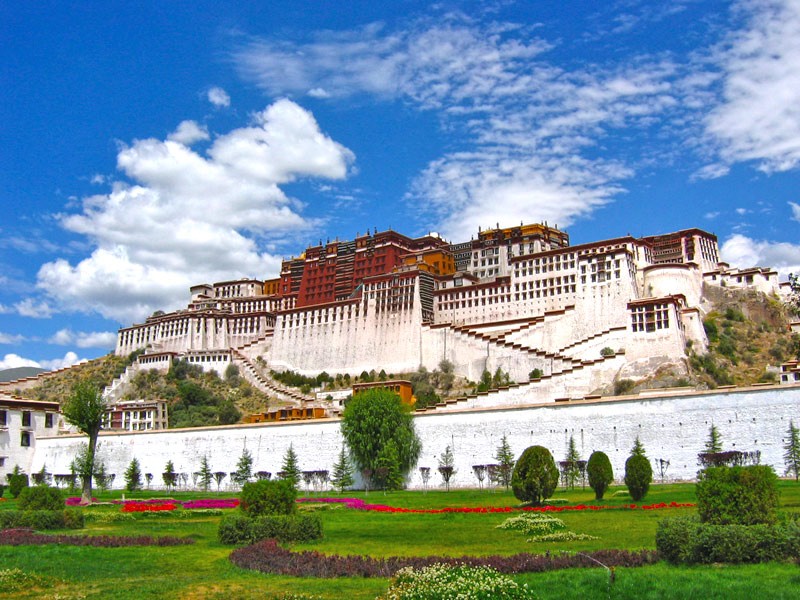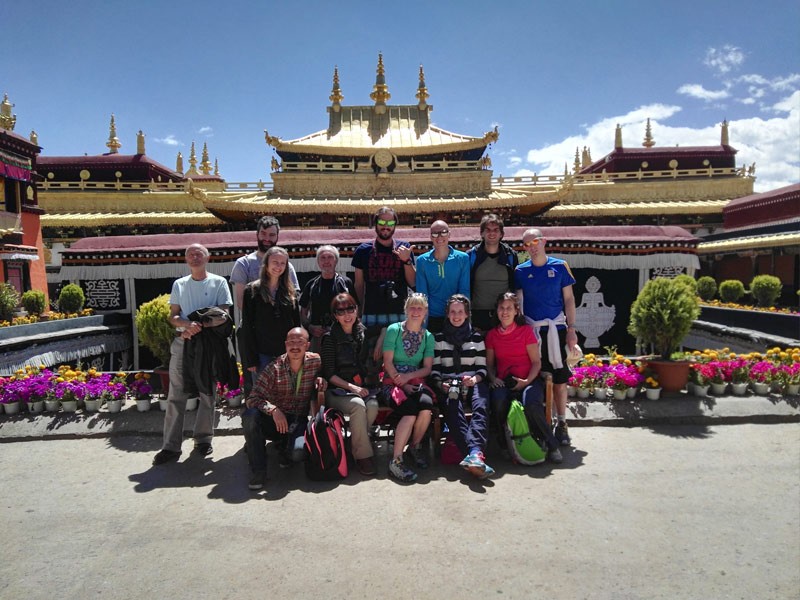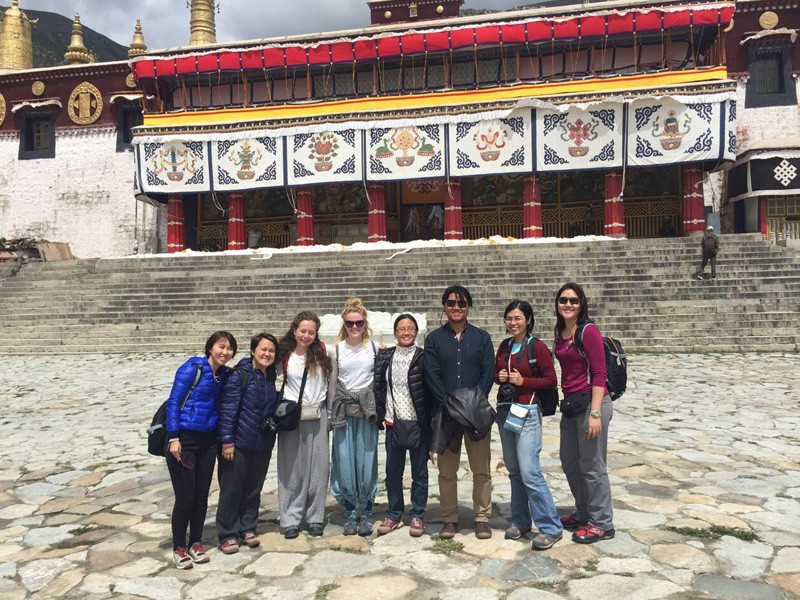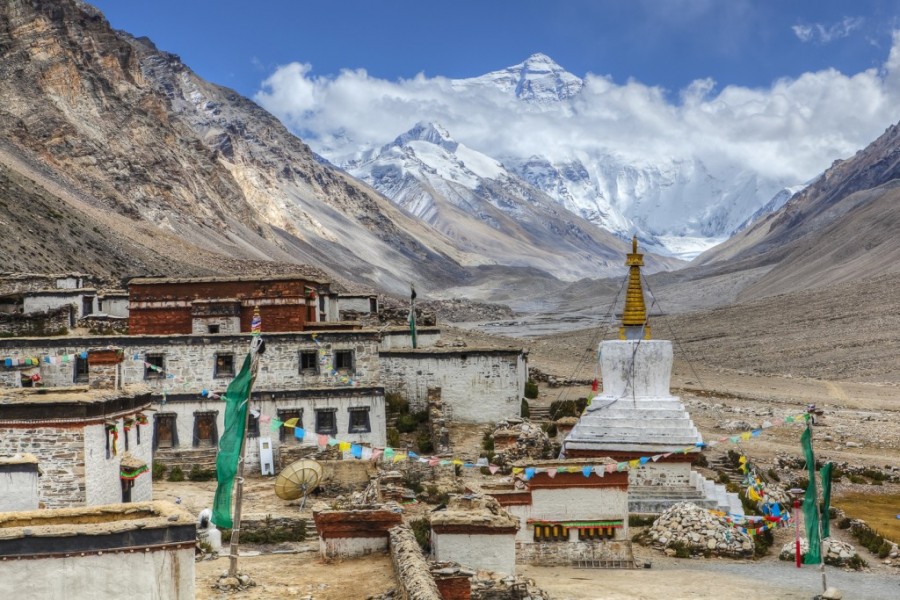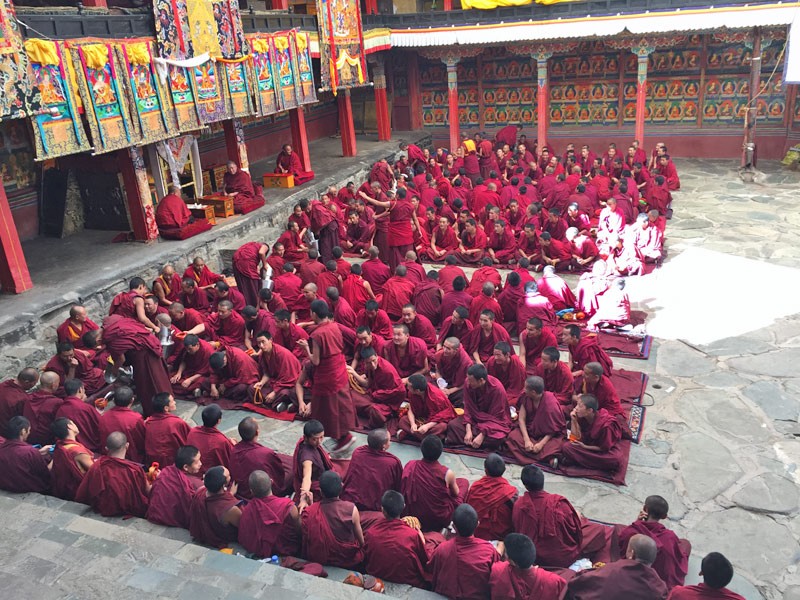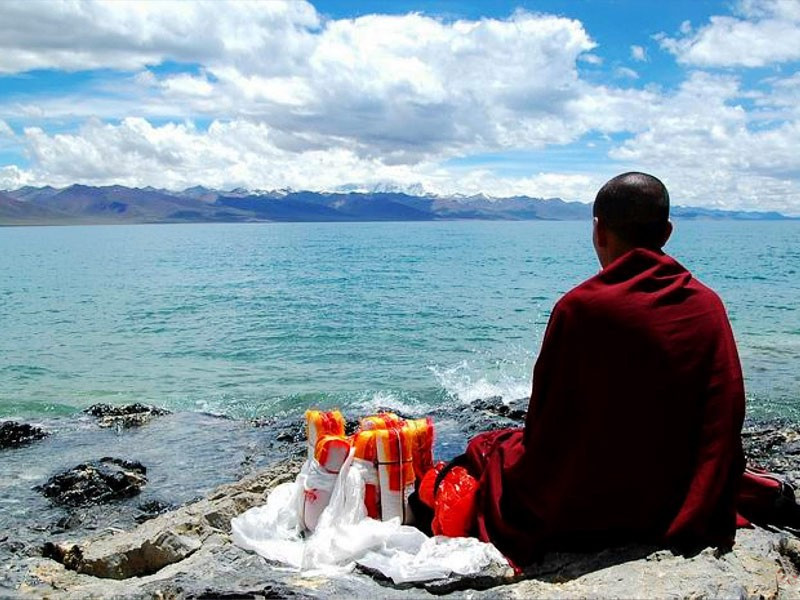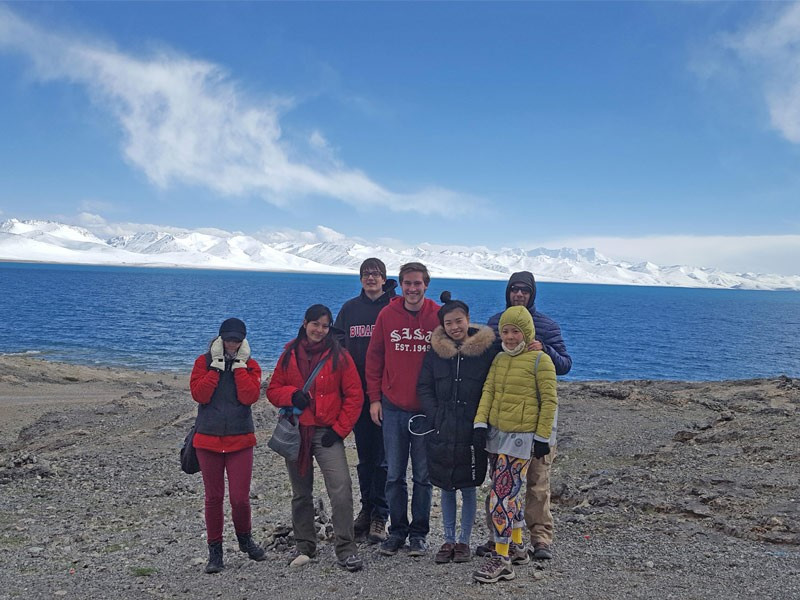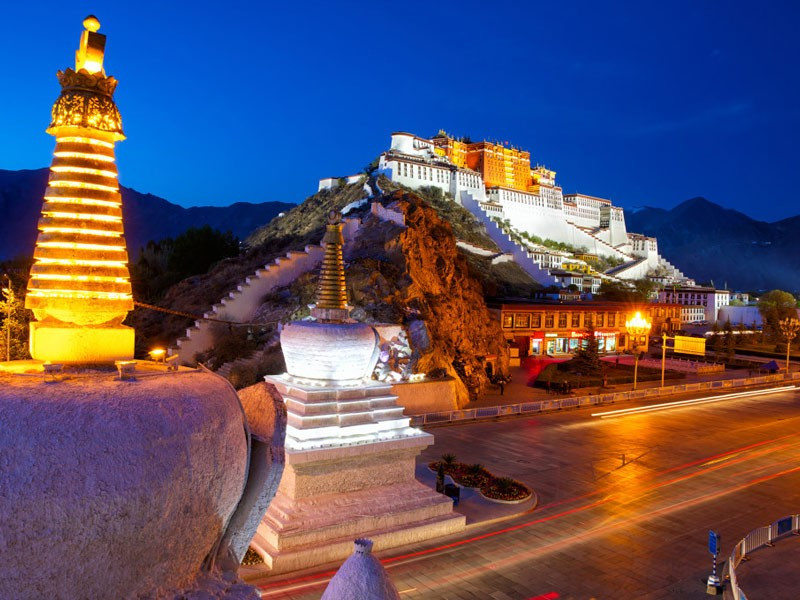Life-changing experience
You hear a lot of cliches about how unique Tibet is but when you go you realise it's true. Right from when you get off the plane there is a special feeling in the air (literally, because you're 3,600m above sea level in Lhasa) and you suddenly feel a million miles away from
the rest of the world. The people are so calm, open and friendly, and it's just fascinating to see a place where Buddhism (or indeed any religion) is so woven into the fabric of everyday life.
The landscape throughout was the most breathtaking of any I've seen and, while there are a lot of monasteries to visit, each one has its own charm and surreal atmosphere so the equivalent of "temple fatigue" that you can get in a lot of East Asia doesn't really apply.
One of the peculiarities of Tibet is that as a foreigner you are obliged to be accompanied by a licensed tour guide and a driver at all times and you need to be ready to produce your Tibet traveller's permit at various checkpoints and sites. This wasn't as onerous as I'd expected.
They recommend you take at least a day to acclimatise to the altitude when you arrive. Turns out they're right. We arrived a day late due to flight delays and so launched straight into our itinerary. We were fine at first but the guide ended up needing to rush off to get a can of oxygen for my wife as we were walking around Lhasa and then later in the day I ended up in bed for a good 15 hours with what I would describe as a cross between the flu and the worst hangover of my life. Most people are fine though, as long as you take it easy to begin with.
We did an 8-day tour with Tibet Vista, starting in Lhasa, then visiting Yamdrok Lake, Shigatse and Namtso Lake. You can do this as part of a tour group. My wife and I chose to form a 2-person "group“ of our own, which obviously works out more expensive but gives you more flexibility. The company were really helpful in setting up an itinerary for us (which you have to do before you arrive due to all the government controls).
Our guide, Namgyal Gyap, deserves a special mention; couldn't recommend him more highly. Right from the start he encouraged us to ask as many questions as we wanted about Tibetan culture and history (note: you need to be mindful that you are putting local people in a potentially difficult position if you insist on talking about politics given the situation in Tibet). A devout Buddhist himself, Namgyal patiently explained the relationship between the different schools of Buddhism, the meaning of the various rites and features at the monasteries, and all manner of everyday stuff that we saw happening. He even helped translate for us when we wanted to ask an old monk a few questions, and taught us to meditate. He spoke good English and had an instinctive understanding of what we (I'm British, my wife's Chinese) might find difficult/interesting.
Highly recommend Tibet, and recommend looking these guys up if you do.
Read more

